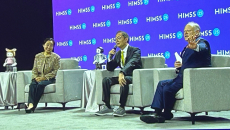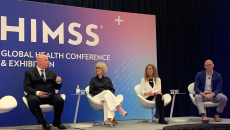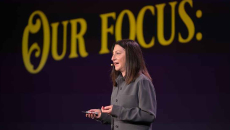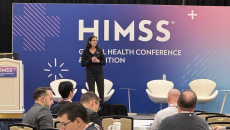HIMSS25
Without short-term change, execs believe tech doesn't live up to its billing and go back to business as usual – then, they wake up and the whole world is different and they have fallen behind, warns FDB president at HIMSS25.
As healthcare information and technology leaders worldwide strive for system transformation and adapt to a fast-changing health ecosystem, they should take lessons learned at the conference back home and put them into action, said HIMSS CEO Hal Wolf.
The AI in Healthcare Forum, the Executive Summit and the inaugural Smart Health Transformation event all had a lot to say about artificial intelligence and its impacts. From Las Vegas, the HIMSS Media brand editors offer their perspectives.
Cybersecurity In Focus
Automation and emerging technologies may accelerate efficiencies but can also add to IT burdens. Careful planning, testing and frameworks are a must to avoid creating new security problems, say panelists at HIMSS25.
The 'agentification' of health IT that integrates AI and automation is enabling a real-time reimagining of practice operations, workflows and the patient-provider experience, the EHR vendor president says.
The HIT landscape is evolving toward tools that support tangible improvements in direct care delivery, diagnostic accuracy and the preservation of meaningful human connections, Kem Graham of EHR vendor CliniComp says at HIMSS25.
So says Artisight CEO Andrew Gostine. Hospitals of the future will rely on real-time data capture, predictive analytics and intelligent automation to scale care while improving both the patient and clinician experience, he adds.
Smart TV's are giving patients the ability to control their environment.
AI and other digital tools are easing cognitive burdens for clinicians and enabling leaders to reallocate staff to higher-value tasks, says Whende Carroll, clinical informatics advisor at HIMSS.
Houston Methodist Hospital is using text messaging, voice technology and generative AI predictive analytics to drive patient-centered care.









